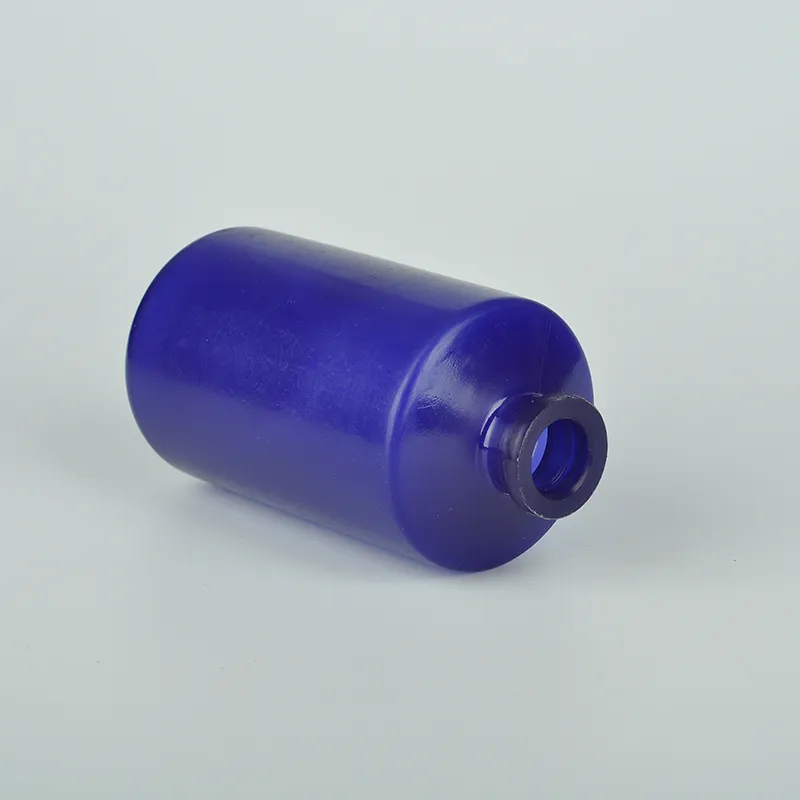https://www.wahmg.com/)">
Sterile Plastic Vials for Pharmaceutical and Laboratory Applications
Sterile Plastic Vials for Pharmaceutical and Laboratory Applications
The Importance of Sterile Plastic Vials in Modern Science and Medicine
Sterile plastic vials are an essential component in various fields, including pharmaceuticals, biotechnology, and laboratory research. These vials serve multiple purposes, such as the storage and transportation of biological samples, pharmaceuticals, and reagents. Their significance cannot be overstated, especially when it comes to maintaining the integrity and safety of the materials contained within them.
Designed for Safety and Integrity
One of the primary functions of sterile plastic vials is to preserve the sterility of their contents. By being manufactured in controlled environments and subjected to stringent sterilization processes, these vials mitigate the risk of contamination. This is crucial in medical and scientific applications, where even the slightest contamination can lead to invalid results, ineffective treatments, or infections. Sterile vials are typically sealed tightly to prevent foreign substances from entering and causing contamination, which further ensures the safety of the samples and the reliability of the research or treatment being conducted.
Versatility of Plastic Vials
Plastic vials are made from various materials, including polypropylene and polyethylene, which offer several advantages over glass alternatives. For instance, plastic vials are lighter, shatterproof, and easier to handle, making them especially useful in dynamic settings such as laboratories and hospitals. Moreover, plastic can be molded into various shapes and sizes, allowing for customized solutions tailored to specific applications. This versatility makes plastic vials an excellent choice for researchers and healthcare professionals alike.
Applications in the Pharmaceutical Industry
sterile plastic vials

In the pharmaceutical sector, sterile plastic vials are used extensively for the packaging of injectable drugs, vaccines, and biologics. The stability and integrity of these products are paramount, and sterile vials help ensure that they remain effective throughout their shelf life. With the rise of biologics and gene therapies, the demand for reliable storage solutions has only increased, further solidifying the role of plastic vials in advanced medicinal therapies.
Impact on Laboratory Research
Laboratory research benefits significantly from the use of sterile plastic vials. Researchers often need to store samples for extended periods, and the ability to maintain sterility is crucial for various biological assays. Whether it involves tissue cultures, microbiological studies, or biochemical assays, the use of sterile vials helps scientists ensure the accuracy of their experiments. Additionally, many labs implement traceability systems that include barcoding and labeling on sterile vials, which aids in the organization and tracking of samples, further enhancing efficiency in research environments.
Environmental Considerations
While the advantages of sterile plastic vials are clear, environmental concerns associated with plastic waste cannot be ignored. The growing awareness of sustainability has prompted many manufacturers to seek eco-friendly alternatives, such as biodegradable materials or recycled plastics. The development of such alternatives aims to strike a balance between the need for safe, sterile storage solutions and the imperative to minimize environmental impact. Consequently, the industry is evolving, with many companies committing to sustainable practices without compromising quality.
Conclusion
In summary, sterile plastic vials play a crucial role in modern science and medicine. Their ability to maintain the sterility of contents, versatility in design, and contributions to safety and efficacy in pharmaceutical and laboratory applications make them indispensable. However, the industry must also address the environmental challenges associated with plastic use to ensure a sustainable future. By embracing innovation and responsible manufacturing practices, we can continue to rely on sterile plastic vials while positioning ourselves as stewards of the environment. As science progresses and the demand for safe and effective storage solutions increases, the importance of these vials will continue to grow, painting a promising picture for their future in various applications.
-
Wholesale Plastic Juice Bottles with Caps 16 oz Options Available Bulk Packaging SolutionsNewsJun.10,2025
-
Laboratory Apparatus Reagent Bottle – Durable & Chemical Resistant Bottles for Safe StorageNewsJun.10,2025
-
Squeezable Dropper Bottles Durable, Leak-Proof & CustomizableNewsMay.30,2025
-
Affordable Plastic Petri Plates Sterile & Disposable Lab-GradeNewsMay.30,2025
-
Eye Dropper Caps Precision 24/410 & Plastic Bottle-Compatible TipsNewsMay.30,2025
-
Affordable Mini Spray Bottle Price & Wholesale Deals Shop NowNewsMay.29,2025





















